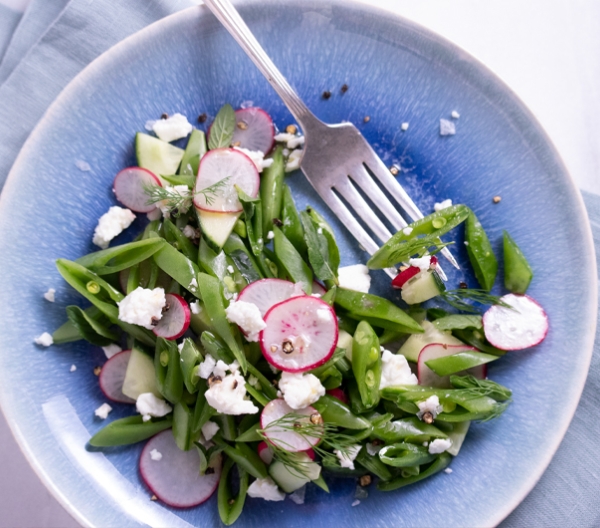How eating more plants can help your heart
How do researchers know that a “plant-forward” diet is good for the heart?
“There are layers of evidence,” says Walter Willett, professor of epidemiology and nutrition at the Harvard T.H. Chan School of Public Health.
For starters, nuts, beans, soy, and other plant sources of protein have more polyunsaturated fat and less saturated fat than red meat and dairy.
“We’ve known for 50 years that polyunsaturated fats reduce LDL—or bad—cholesterol and saturated fats raise LDL,” says Willett. And “red meat is extremely low in polyunsaturated and quite high in saturated fats.”
Dozens of studies have demonstrated the impact of different fats on LDL
“Trials clearly show that replacing red meat with plant-based protein sources like nuts, beans, and soy foods reduces LDL levels,” notes Willett.
And it’s not just saturated vs. polyunsaturated fat. Last year, researchers fed people diets rich in red meat (beef), white meat (chicken and turkey), or non-meat proteins (largely beans, nuts, and soy foods) for four weeks each.
To look beyond the impact of fats, the scientists made all three diets equal in saturated and polyunsaturated fat, largely by adding saturated fat from full-fat dairy foods and butter to the white meat and non-meat diets.
(That’s why LDL was equal on the red-meat and white-meat diets.)
The surprise: LDL was lowest on the non-meat diet
“Detailed comparison suggests plant proteins are better for the heart,” said the National Heart, Lung, and Blood Institute (which funded but did not conduct the study) on its website.
“Ideally, if we wanted to know about the long-term health effects of plants, red meat, or other foods on heart attacks or other chronic disease, we’d randomly assign thousands of people to different diets for many years to see what happened to their rates of those diseases,” says Willett.
But few such studies have ever been done.
“It could be very hard to get thousands of people to sign up to be randomized, hard to keep them on those diets, and hard to get an ethics board to approve diets that have adverse effects on cardiovascular risk factors like LDL,” notes Willett.
So instead of assigning people to different diets, researchers ask people what they eat, then track their illnesses for years or decades. Recently, those studies have looked at people who eat diets rich in healthy plant foods.
“Soda and doughnuts are plant foods,” says Willett, “but they’re definitely not healthy.” So his team created an index for healthy and unhealthy plant foods.
How the index for healthy and unhealthy plant foods worked
People gained points for eating fruits, vegetables, nuts, beans, whole grains, oils, tea, and coffee more often. And they lost points for eating refined grains, potatoes, fruit juices, sugary drinks, sweets, and desserts more often.
“Diets high in healthy plant-based foods did best,” says Willett. That is, people eating them had a lower risk of both heart disease and type 2 diabetes. “The unhealthy plant-based diets did the worst.”
But you don’t have to go vegan
There's no need to avoid all animal foods.
“The further you go toward a plant-based diet, the lower your risk of these diseases,” says Willett. “But it’s not all or nothing.”
“In fact, we can’t say whether a very low intake of animal protein is better or worse than no animal foods at all. Having a little fish, poultry, or dairy may be a safety net to provide certain nutrients. That’s typical of many traditional diets like the Mediterranean diet.”
Continue reading this article with a NutritionAction subscription
Already a subscriber? Log in

Let's get cooking
Recipes from The Healthy Cook
You can't get to healthy without delicious! That's where our recipes from The Healthy Cook, Kate Sherwood, come in. Search by categories like salads, soups, side dishes, vegetarian, vegan, and more.

